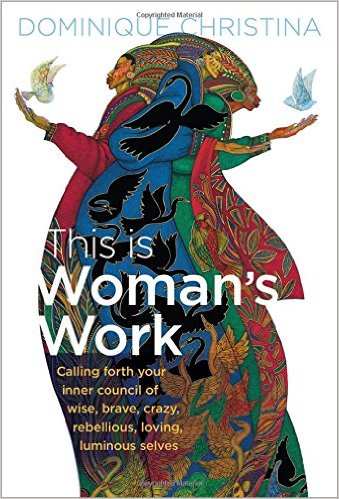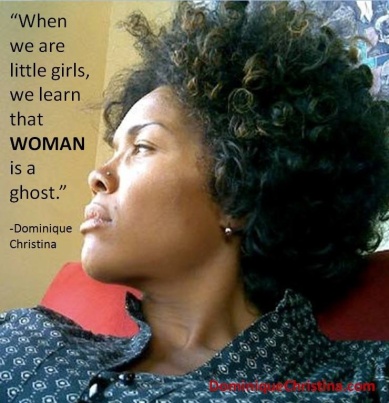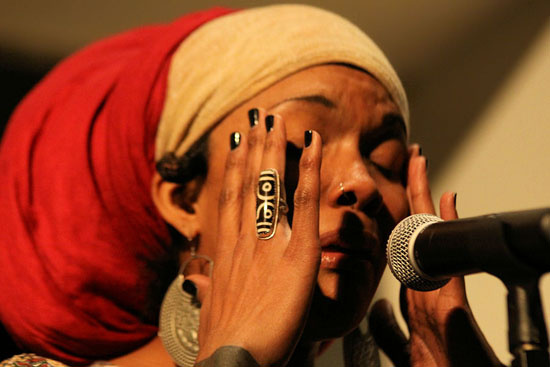“In stories, women must always be punished for being too big, too beautiful, too brilliant, or too brash, for forever communing with snakes. The lesson is always the same: women like this must be reviled and feared, shunned and shuttered. Yet I am inclined to bring those women into my family and add my name to the list of those with wings and rage and a wide capacity for self-definition. They are all welcome here.”
This is Women’s Work, introduction: “Our Unclaimed Hallelujahs”

My first year of college, I took a required class called a University Writing Seminar. There were plenty of options of UWS courses, designed to suck first year students into college writing while appealing to our interests. Since I was a huge nerd, I took the Fantasy Literature UWS, which took us through writing a close reading essay, a lens essay, and a research paper with such excruciating slowness that I nearly threw myself out the classroom window.
Putting aside the fact that I found this class absolutely awful in the way it was designed, organized, and taught and probably only survived it by watching the doomed romance between my roommate and one of our classmates and silently exchanging bets with another classmate, one of the primary things that stuck out to me about this class was the totally awful treatment of women in the books and essays we read. We spent a fairly significant amount of class time discussing fantasy archetypes, and nearly every archetypical example of women and girls in fantasy lit was either evil or helpless, and all of them were wrapped up in so much patriarchal bullshit I nearly staged a revolt.
(Instead of officially revolting, I used every possible opportunity to write essays about female writers, female characters who gave a firm middle finger to the patriarchy, and wrote my final essay about BDSM and empowered sex workers in fantasy literature. SUCK IT.)

When I picked up this week’s book, Dominique Christina’s This is Woman’s Work, from the shelf at my local library, I was expecting it to be about women’s work in the way it’s often discussed in feminist and social justice circles: the often underpaid, if paid at all, emotional, physical, and mental labor performed by women, with little to no acknowledgment from families, workplaces, and social institutions in general. I was expecting a fairly academic text, maybe with a touch of humor or discussion.
The reality of this book, guys? It was so much better.
In This is Women’s Work, slam poet Dominique Christina creates a book that is part poetry anthology, part instructive text, part essay collection, part writing prompt collection, part journey of self-discovery and self-disclosure. She writes that a woman’s work “is to define herself,” and invites her readers to join her in exploring archetypes of women created and identified not through a patriarchal lens but through perhaps the very opposite: the eyes of a brilliant, creative queer woman of color.

Rejecting traditional archetypes of the mother and the whore, the ingénue and the orphan, Christina introduces the Rebel Woman, who forms her identity in opposition to some external force, the Woman with Cool Hands, who provides a balm to those around her and finds calm in caring, the Howling Woman, who lives in suffering and grief. She pairs each archetype with a poem and a writing exercise, inviting readers to identify parts of themselves with each woman she names and explores. She provides examples, both real and fictional, of each archetype, and guides her readers through finding connections to the feared and loved parts of themselves in each “inner woman”—the parts of ourselves that we both revere and reject, the parts that we hide away and the parts that we display with pride.
After receiving a degree in writing that, even at my super liberal university, still spent a huge amount of time highlighting white male voices in literature, throwing myself into This is Woman’s Work feels like a plunge into a clean, cool lake on a hot, sticky summer day. Christina’s voice is refreshing in its clarity and poignancy; she pulls no punches and does not shy away from sharing the most intimate and vicious of experiences: pregnancy and childbirth, the discovery of sexuality, the sick anger and violation of sexual assault, the raging power of creativity.

Whether you’re a writer, a woman, a lover of poetry, a student of literature, an avid reader, or any combination of the above: you need to read this book. It’s an eye-opening, gorgeous way to discover archetypes of women that push back against classic roles and instead demand recognition and appreciation. The inspirational writing exercises, poetic descriptions, and brilliant depictions of each and every incarnation of womanhood create a beautiful lens through which the reader explores their own journey of self. Each line spills across the page like poetry, and the text sucks you in soul-first and doesn’t let go.
“Praise the atoms and the cells that make your body a cathedral. Praise. Praise that there is so much of you left. Praise. Praise the otherworldly algorithm that is your heart. Yes, especially that. Praise and praise and praise. Revolution is the sound of your heart still beating. So praise. Praise. Praise.”
![Human Living Human[e]ly](https://humanlivinghumanly.wordpress.com/wp-content/uploads/2014/06/cropped-2012-12-15-12-17-381.jpg)